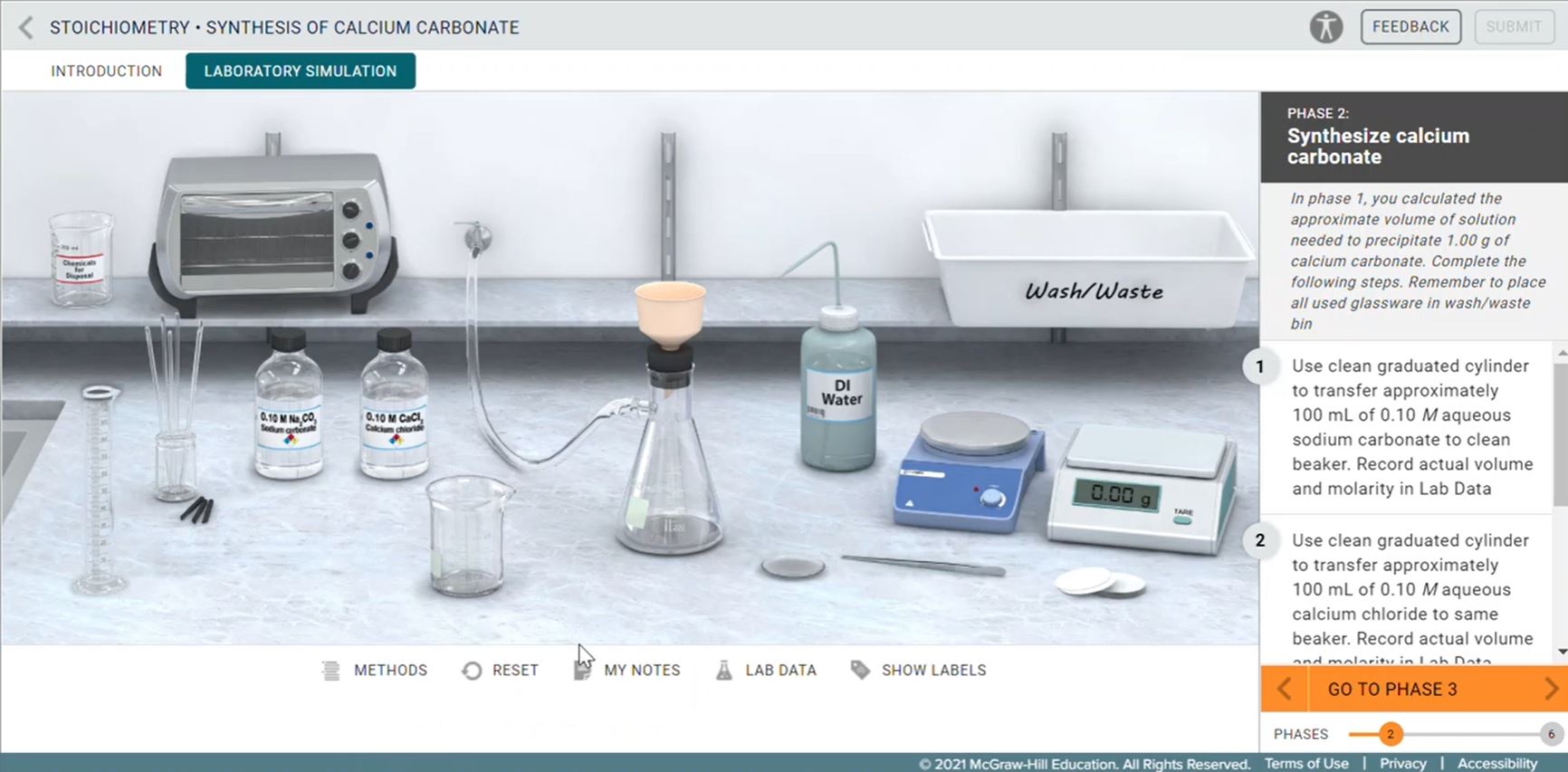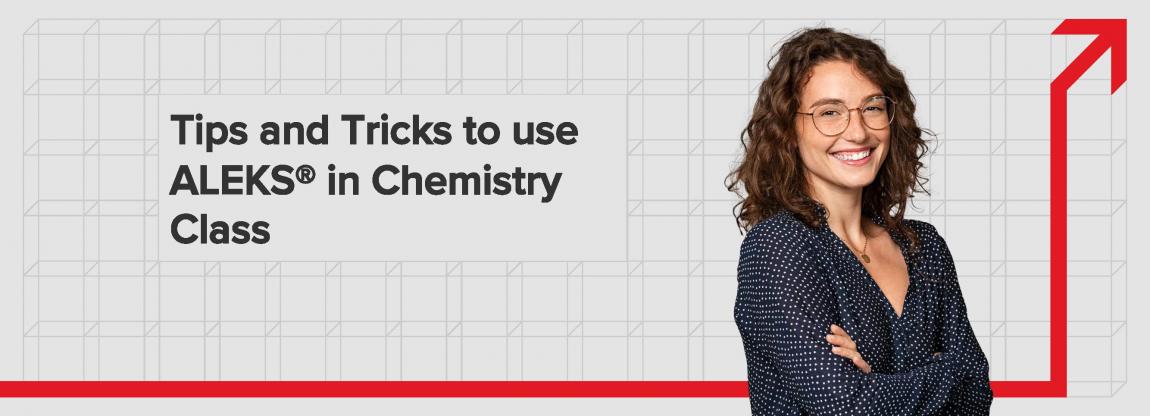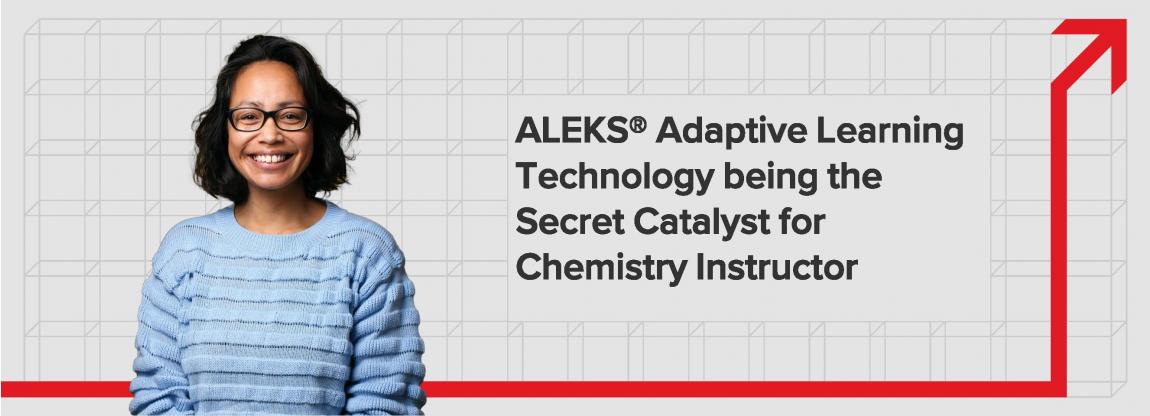5 Tips and Tricks to use ALEKS in Chemistry class
1. How can an instructor implement ALEKS® in the classroom?
There is no one way of doing this – the instructor has the flexibility to decide. Below are a few ways where an instructor can use ALEKS:
- Homework – The experience will be different from the traditional homework pattern as ALEKS uses adaptive learning technology.
- Pre-lecture assignments – If the instructor wants the students to read or prepare something before coming to the lectures, ALEKS can be used.
- Open pie mode – The instructor can share all the course topics with the students and let them do it on their own. Some may prefer this approach while other may not.
- Course Prep/review – ALEKS can be used when the instructor wants to assess what knowledge the students have got or what they’ve already learnt in the past.
- Fundamental Knowledge – Understanding of some basic principles about the course can be assessed through ALEKS.
2. How can an instructor grade in ALEKS?
Again, this is at the discretion of the instructor. The most common grading scheme is the use of 50-50 split wherein instructors can assign 50% objectives that will need to be completed at certain due dates and the rest of 50% focus will be on pie chart completion. ALEKS further lets the instructor decide if he wants to plan these grading criteria for one semester or the whole year or any academic unit of time, they wish to apply this to. The instructor can change the split of the methods or even decide to use just one method of grading, in summary, ALEKS offers full flexibility to the instructor on how he wants to plan his grading system.
3. How can an instructor assign homework through ALEKS?
With the ALEKS Homework Engine (AHE), it is now convenient for instructors to pick questions for homework assignments. They can select instances of questions from the individual topics and assign them to the students. These questions do not leverage the artificial intelligence of ALEKS but offer individual opportunities to the students to work on specific types of problems and practice. Starting from the textbook Chemistry 14th edition, the end of chapter problems are also integrated into the ALEKS Homework toolkit. So, this gives instructors a plethora of options to choose from while planning students’ homework. And since ALEKS has a mathematical background (as it is also suitable for Maths instructors) it can assess numbers and equations too.
4. Does ALEKS have an eBook?
An interactive and reinvented design of the eBook has been planned from the textbook Chemistry 14th edition. The eBook has been integrated into ALEKS, wherein the chapters have been broken into a modular approach rather than one big page of information, primarily to make topics more readily available to students. The eBook has been redesigned for instructor usefulness and increased student focus. The newly designed eBook will enable students to engage with the content more actively and provide another opportunity to practice repeatedly and consequently retain the acquired knowledge.
The eBook can also be used by the instructors to teach the students in the classroom, in a more interactive manner as it has got clear click-through options that demonstrate every stage of the process with a complete explanation. For example, the topic ‘hybridisation’ can be better explained using this interactive eBook in ALEKS with a visual demonstration of hybridisation happening in real-time rather than explaining it through words and static 2D images. The eBook also has videos included in it so that students can see and learn, especially when they are away from the classroom and looking for guidance. This helps them channelise their efforts in the right direction rather than searching for material on social media channels such as YouTube.
5. Does ALEKS provide any lab experience?
Virtual Labs, a fully online lab solution, has been included in ALEKS for students to practice and experience the simulations in real-time. Virtual Labs includes a comprehensive list of topics and the instructors can find most of the topics in it that they want to cover in their course. There are fantastic pre-lab assignments that can prepare students for the class. Virtual Labs is considered valuable whether students are taking classes off-campus or on-campus. It lets the students experience the lab, by dragging beakers around, adding solutions, filling the burette, measuring the pH, construct a titration curve or any other assigned task. There are pre-lab and post-lab questions to practice as well. Virtual Labs also facilitate the ‘assess and learn’ pattern. Most significantly, it provides a lab notebook (digitally within the system) so that students can collect and analyse the data which forms a very important feature of any lab experience.


Virtual Lab: Stoichiometry-Synthesis of Calcium Carbonate


